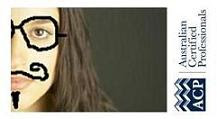Are you having trouble keeping your new year's financial resolutions?
At a glance: According to a BankWest survey, one in five Australians will have broken their New Year's financial resolutions by Easter.
BankWest have conducted a survey that has shown that at the start of the year, about half of Australians had set themselves a financial goal. The survey showed that some people making New Year's financial resolutions intended to either start saving or increase their savings while others were looking to reduce debts and curb their spending.
However, the survey has revealed that one in five Australians find it difficult to keep their financial resolutions due to higher interest rates, increasing rents and higher priorities. According to BankWest head of marketing and products, David Rose, the key is sticking to a habit of putting a little bit away on a regular basis. Mr Rose said, "Starting and maintaining the discipline is crucial. If you do it month after month, you clear the debt and build up nest eggs."
BankWest will be launching a new section on its website www.getsaving.com.au to provide visitors with tips on how to meet their financial goals.
Remember: You should check and see whether or not you are meeting your financial goals. Speak to your financial advisor about ways of starting and maintaining the discipline of saving more and spending less. Contact us if you require any clarification or advice.
